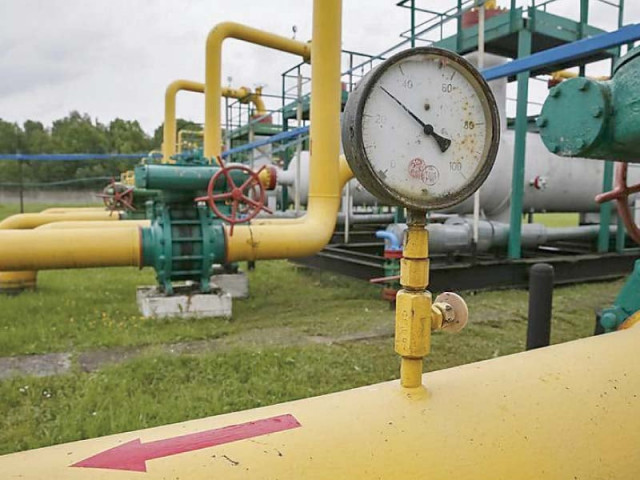Govt mulls over plan to build underground gas storages
Facilities will be used to store gas that is not immediately marketable

If the government gives the go-ahead, ISGS will undertake a detailed techno-economic feasibility study before initiating the project implementation through government-to-government arrangement or open tendering process. PHOTO: FILE
The facilities will be used to store gas that is not immediately marketable, particularly in the summer season when the demand is low. The gas can be delivered to consumers during the high demand periods in the winter months.
Officials informed that, in this regard, the Petroleum Division had prepared a plan to seek approval from competent forums like the Cabinet Committee on Energy to build these storages. The gas stored in these storages could help the government tackle any gas crisis in future.
Considering the committed supply of imported gas projects, officials said the country required underground gas storages. Such facilities have become more important due to changes in natural gas demands and the gas import projects, which Pakistan was working. The government had given strong commitment to gas supplier countries like Turkmenistan that it would take gas and therefore the country requires storage facilities to store gas in case there are no consumers.
Pakistan had already faced a similar situation in the case of LNG terminals. The capacity of these terminals remained idle due to less demand from the power sector. However, the government paid capacity charges worth multimillion dollars to these terminal operators because the country had no storages. The officials said that the gas storage could also be used as an insurance that may affect either consumption or delivery of natural gas.
These may include natural factors, or malfunction of production or distribution systems. The storage can be used to store any gas that is not immediately marketable. This project is also required in the light of take or pay commitments on existing Gas Sales Purchase Agreements (GSPA) with gas supplier countries like Turkmenistan. If Pakistan does not take gas from the gas producer countries, then Pakistan would have to pay cost of gas under 'take and pay' clause of GSPA.
New acting heads of SNGPL, SSGC appointed
If the government gives the go-ahead, Inter State Gas Systems (ISGS), a state-run entity dealing with gas import projects, will undertake a detailed techno-economic feasibility study before initiating the project implementation through government-to-government arrangement or open tendering process.
Government Holding (Private) Limited (GHPL) may provide initial funding to implement the project including hiring of consultancy services. Alternatively, initial funding may be considered through technical assistance programme sponsored by Asian Development Bank (ADB) and World Bank or USAID.
In order to meet the growing energy demands, the government of Pakistan is implementing various gas import projects such as Turkmenistan-Afghanistan-Pakistan-India (TAPI), Offshore Gas Pipeline Project (OGPP) etc. Currently, the growing energy demands of Pakistan are being met through import of LNG from Qatar and other countries.
ISGS through an international consultant carried out a feasibility study for the construction of the Strategic Underground Gas Storages (SUGS) in 2007.
The consultant studied 107 reservoir sites including depleted oil and gas fields based on the evaluation of their geological characteristics, injection and extraction facilities, required gas injection and production facilities, connection to existing and proposed gas infrastructure including the project pipeline system and time lines to prepare these reservoirs as SUGS.
The consultant recommended conversion of two gas fields ie Khorewah and Bukhari in Sindh to a gas storage reservoir. The estimated capital cost of strategic underground storages has been estimated around $603 million and the estimated useful life is 26 years with the first six years required to develop the project. The first fill and load is estimated at $1.3 billion. The consultant laid down various methodologies to ascertain the tariff of this capital intensive project.
Published in The Express Tribune, January 12th, 2019.
Like Business on Facebook, follow @TribuneBiz on Twitter to stay informed and join in the conversation.



1733130350-0/Untitled-design-(76)1733130350-0-208x130.webp)















COMMENTS
Comments are moderated and generally will be posted if they are on-topic and not abusive.
For more information, please see our Comments FAQ